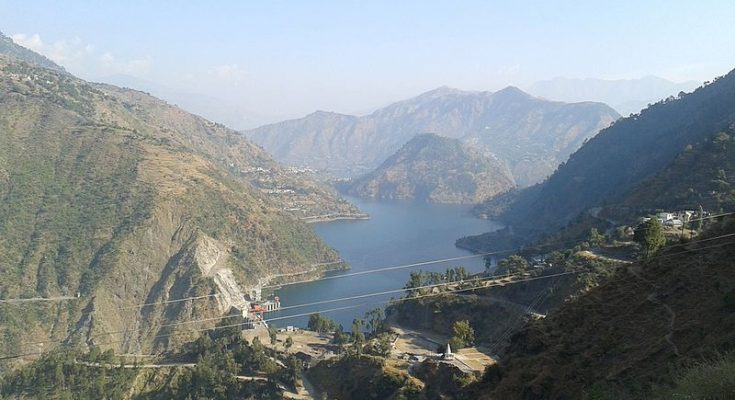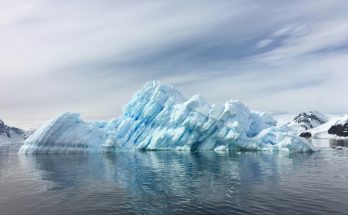Islamabad/JEN: Even as the Shehbaz Sharif-government ministers are busy globetrotting calling upon the world to save Pakistan from climate disaster, the government is spearheading a disastrous real estate project near Lahore in Punjab, throwing out thousands of farmers and drastically altering the course of river Ravi which could cause flooding during the rainy season.
Pakistan suffered a major flooding event in 2022 which eventually caused a wheat crisis, massive civilian casualty and displacement, all of which the Shehbaz Sharif government has been using to evoke global sympathy and funding.
In today’s Pakistan, millions are struggling to procure bare minimum wheat flour in the market. The basic food item has become exorbitant and is in acute short supply. Several persons have died in the melee to get the wheat flour supplied by the government.
Thousands of families are forced to make do with one meal a day—children making do with one meal and women not even that.
The unprecedented food crisis requires long term steps to increase wheat production which means increased cultivation of wheat, better irrigation and fertiliser. But the Lahore city project runs counter to such an imperative need.
A hard-hitting report released by Human Rights Watch early April this year showed how Pakistan was running contrary to its loud claim of being victims of climate change.
The state was creating a major climate catastrophe by turning 100,000 acres of farms into a new spanking city on the outskirts of Lahore, all to benefit land sharks and real estate conglomerates.
The army is the biggest real estate conglomerate; it is not known how much of the over 100,000 acres listed along the Ravi river will be taken over by the army-run housing companies.
Aimed to house 12 million people, the Ravi Riverfront Urban Development Project is among the largest infrastructure projects in Pakistan.
The US $7 billion project is being touted as “world’s largest riverfront city”.
The international NGO had documented how thousands of farmers were being harassed and threatened and deprived of their homes and livelihoods to help the rich and influential real estate lobby.
Over 85 percent of the designated land is agricultural land occupied by over one million farmers, labourers and business owners.
About two years ago, similar conclusions were drawn by the Pakistan Human Rights Commission.
The commission had organised a civil society consultation on the project on January 26, 2021. The meeting witnessed Dr Ali Usman Qasmi, an academic and activist at the Lahore University of Management, pointing out that the project was not aimed at resolving the country’s severe housing crisis.
Qasmi said the project, on the other hand, “represented a typical speculative real estate venture where the approach was to take an abstract space and commodify it for commercial purposes”.
The government has been least interested in the environmental factor. The project was initiated during the Imran Khan regime but is continuing with greater flourish under the Sharif government although the latter had been projecting itself as a Climate-change sensitive government.
The entire project area contains 116 fauna and 147 plant species according to the Environmental Impact Assessment report of the project.
The proposed green area in the form of reserved forests, eco-farms, central parks, and botanical garden is 12,172 acres.
Most of these environmentally sensitive areas, flora and fauna will be seriously affected by the mega project, triggering cumulative climate altering events in the years ahead.
There has been a consistent outcry against the project from concerned citizens.
Leading architects, cultural, heritage and environmental experts and a large number of civil society representatives have termed the project as a disaster for the natural flow of river and ecological balance.
One of the leading architects of Pakistan,Prof Fauzia Husain Qureshi, in an interview to Daily Times, called the project a complete disaster for Lahore and its people as it would destroy the ecological balance.
He said the land mafia was behind this multi-billion project who wanted to acquire the prime agricultural land from poor farmers at nominal prices in connivance with the government.
This is what the HRCP’s fact-finding mission reported—that both Ravi City and the river’s channelisation come with “serious environmental hazards and evictions of local farmers, along with the destruction of their agricultural land.”
There are equal concerns about the nature of the project. Environmental lawyer Ahmad Rafay Alam has talked about the lack of transparency around the project, including its budget,financing and approval
procedures.
Environmentalist Vaqar Zakaria has underlined the project’s lack of detail, such as the amount of land to be used, its purpose and exact locations.
In all, a mega fraud of a project that will take land away from farmers, empty the wheat basket and create climate catastrophe in the years to come.
So next time when a Shehbaz Sharif government’s minister talks about climate change, the Ravi Riverfront Development project should be flagged as a project that will bring only disaster and tragedy in the near future.
#ClimateChange #Pakistan #PakistanClimateDisaster #PakistanClimateDebate #ShehbazSharif





